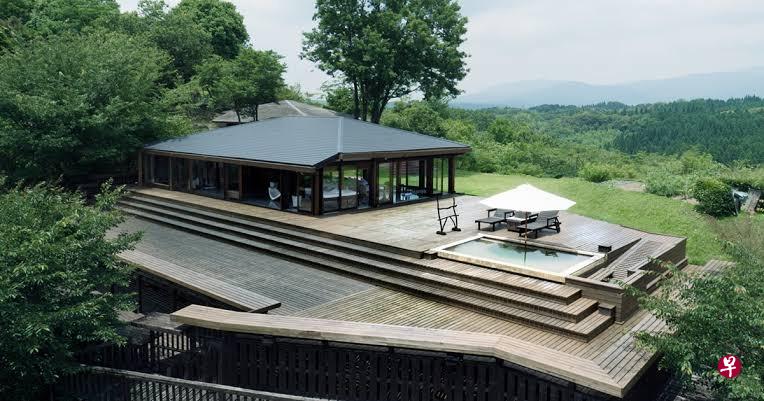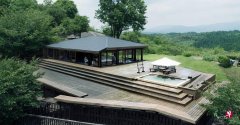
For the Japanese, hot springs are one of the one in life.Enjoy.The crown disease has lasted more than two years. Do they still love to make hot springs?What changes have taken place in Japan's hot soup industry?
A question in the recent travel questionnaires released by the Japan Transportation Commune is: "When traveling in Japan, which scenes make you feel disturbed?" As a result, 36.4%of the respondents answered the hot springs.
Before the outbreak, the Japanese average three seasons of spring and autumn and winter each year, at least twice in the suburbs.The epidemic has made many people choose to restrain, which greatly reduces the number of hot springs.In addition to being worried about the infection of crown disease, some people feel that "originally to relax to go to the hot spring, but you have to wear a mask when you take off your clothes, so uncomfortable."
However, the questionnaire survey also found that even in the epidemic, the Japanese's love for hot springs did not cool down.There are as many as 69.8 % of "Miss Hot Spring" and "Favorite Hot Spring".This reminds Japan's hot spring operators that during the epidemic period or in the era of epidemic, it is necessary to continue to develop the hot spring business, and it may have to re -adjust the service.
Japan is a volcanic country, and the volcanic landforms have made natural hot springs everywhere.The hot spring investigation report issued by the Ministry of Environment in Japan shows that there are 2,971 hot spring areas across Japan, and there are 27,696 sources excavated so far.There are many volcanic Kyushu County, Kagoshima Prefecture, Shizuoka Prefecture in Mount Fuji and Hokkaido in Bingtian Snow, all of which are famous hometown of hot springs.
Winter below zero temperature is the peak season of hot springs in Japan. The Japanese business is done around New Year's Day every year. By the Spring Festival in February, the business of overseas Chinese.However, after 2020, everything has changed.According to the statistics of tourism industry issued by the Japan Communications Bureau, under the tourism policy promoted by the Japanese government, the number of overseas tourists in Japan reached its peak in 2019, exceeding 30 million, but the next year due to the crown disease epidemic, it decreased by 99%.
In the first half of 2020, after the Japanese authorities announced the "emergency situation" of the crown disease epidemic, Japanese hot springs became the most uninvited tourist attractions and entered the "cold winter" of struggling to survive.
Xue Sen Tang, the Chinese owner of the Chinese -operated hot spring hotel in the local vacation village -style hot spring hotel, talked about the dilemma they faced in the United Zaobao interview.He said: "Some old hot spring hotels around Mount Fuji have been unable to hold on. Before, my hotel also benefited from the high booking rate of foreign tourists, and 280 rooms would live. In February 2020, the epidemic began to spread behind Japan.All we have received are just canceling the call. "
Xue Sen Tang pointed out that the epidemic has not faded, and the booking rate cannot be recovered.He must cope with the basic expenses of 20 million yen (about S $ 234,000) every month. How to maintain business has become the biggest problem since his startup.
After the announcement of the year of the Tokyo Olympics in 2020, Xue Sen Tang decided to use this time to renovate the hotel to launch more hot spring services suitable for family or couples.
Xue Sen Tang explained: "The business of large -scale travel groups I did before, group customers often only regarded the hot spring hotel as a post station. Most of them stayed for one day.After the employees discuss the countermeasures, the bathing structure of the hotel is transformed, and the bathhouse is converted into a small hot spring for a family, couples or couples. "
After the outbreak is outbreak, many Volkswagen Hotels in Japan do indeed indeed.Steading away from the "niche" route and adding wooden hot spring bathtubs in the guest room, pay more attention to the privacy of customers than before.
The Japan Broadcasting Association (NHK) recently discussed the hot springs during the epidemic that hot springs are the customs of the Japanese, and even in the epidemic, the industry will launch a hot spring that can coexist with crown diseases.Raiders.The Japanese authorities demand that people entering the bath must abide by the two major principles -not to speak in the bathhouse, and avoid the bathhouse too crowded.
Hot spring hotel operator: The epidemic changes the Japanese vacation mode
The report also quotes the experts of the Japanese Hot Spring Climate Physical Medical Association, pointing out Japan'sThe indoor hot spring has a good exhaust system. As long as the ventilation is sufficient and the humidity is high, the probability of infection in the hot spring is not high.
Kagoshima is a hot spring town in Japan. There are bathhouse -style hot springs in tourist attractions and cities. Local people will be regarded as a major pastime with soaking hot springs.
Tendojima, who has run the hot spring hotel in Kagoshima for generations, has built the largest secret realm of Japan in the Homoshima area of Kagoshima in the 1990s.He reclaimed the mountain forest with an area of 13 Tokyo Dome baseball stadiums, and built five villas with hot springs, named "Sky Forest".The distance between the villa is far away, and you can see the woods, the sky and the hot spring.
Tamyao Jianfu said: "I decided to open up a hot spring land in nature because people living in modern society urgently need to rest in nature. Historically, the hot spring area in Japan is the autumn harvest.Later, farmers eliminate fatigue, and hot spring water also has functions such as arthritis and skin diseases. It is a beautiful activity to relax my body and mind. I build this hot spring secret. I think about watching the sun in the morning.The rotation of the earth. "
Tamajima believes that because of the epidemic, the Japanese vacation model obviously changes. They pay more attention to the closeness of the hot spring township that is close to nature and stay away from the hustle and bustle of the city.He added that in the post -epidemic era, people's vacation models need not force to return to the past. It is important to have a new perception of nature.
"When people step on the journey again, the scenery of Japan has not changed, but everything you feel will be renewed."


